
MICROBIAL ECOLOGY
Scope & Guideline
Charting the complex relationships within microbial communities.
Introduction
Aims and Scopes
- Microbial Diversity and Community Structure:
The journal explores the diversity of microbial communities across different environments, including marine, freshwater, and terrestrial ecosystems, with a focus on taxonomic and functional diversity. - Microbial Interactions and Ecosystem Functioning:
Research published in this journal investigates the interactions among microbial populations, including competition, predation, and symbiosis, and how these interactions influence ecosystem processes and health. - Environmental Influences on Microbial Dynamics:
The journal addresses how various environmental factors such as temperature, salinity, and nutrient availability affect microbial community composition, dynamics, and metabolic functions. - Application of Molecular Techniques:
Utilizing advanced molecular methods, such as metagenomics and flow cytometry, the journal emphasizes the importance of these techniques in understanding microbial ecology and community interactions. - Impact of Global Change on Microbial Ecology:
The journal focuses on the effects of climate change, pollution, and other anthropogenic factors on microbial communities, emphasizing the implications for ecosystem resilience and functionality.
Trending and Emerging
- Microbial Responses to Climate Change:
Research exploring how climate change impacts microbial communities and their functions is gaining traction, emphasizing the role of microbes in ecosystem resilience and biogeochemical cycles. - Microbial-Eukaryotic Interactions:
There is an increasing focus on the interactions between microbes and eukaryotic organisms, particularly in aquatic systems, shedding light on symbiotic relationships and their ecological significance. - Molecular Ecology and Metagenomics:
The application of molecular techniques, including metagenomics and advanced sequencing methods, is on the rise, enabling comprehensive insights into microbial diversity and community dynamics. - Microbial Role in Ecosystem Services:
Emerging studies highlight the role of microbes in providing ecosystem services, such as nutrient cycling and pollutant degradation, underscoring their importance in environmental management. - Impact of Anthropogenic Activities on Microbial Communities:
Research focusing on how human activities, including pollution and habitat alteration, affect microbial community structure and function is increasingly prevalent, reflecting a growing concern for ecosystem health.
Declining or Waning
- Traditional Laboratory-Based Microbial Studies:
There has been a noticeable decline in studies that rely solely on traditional laboratory methods for microbial analysis, as the field shifts towards more in situ and ecological approaches that consider environmental context. - Focus on Single Species Studies:
Research concentrating on single microbial species has decreased in favor of studies examining community-level dynamics and interactions, reflecting a broader understanding of ecological networks. - Static Models of Microbial Interactions:
The use of static models to describe microbial interactions is waning, as researchers increasingly adopt dynamic and systems-based models that account for temporal changes and environmental variability. - Limited Geographic Scope:
Papers focusing exclusively on localized studies without broader ecological implications or comparisons to global patterns are diminishing, as the journal encourages more integrative and comparative research.
Similar Journals
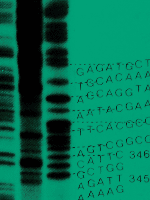
Microbial Genomics
Empowering Research with Transparent ScienceMicrobial Genomics, an esteemed journal published by the Microbiology Society, is a leading platform dedicated to the rapidly evolving field of microbial genomics. Since its transition to Open Access in 2016, this journal has consistently aimed to promote unprecedented transparency and accessibility in scientific research. Based in the United Kingdom, Microbial Genomics serves a diverse international audience, providing an invaluable resource for researchers, professionals, and students interested in genomics, microbiology, and related fields. With impressive quartile rankings in 2023, including Q1 status in Epidemiology, Genetics, and Microbiology, alongside strong performance in other categories, the journal is positioned at the forefront of academic discourse and innovation. This journal's commitment to excellence is not only reflected in its rigorous peer-review process but also in its dedication to showcasing groundbreaking research that informs current practices and shapes future trends in microbial science. As researchers explore the intricacies of microbial genomes, Microbial Genomics remains an essential resource fostering knowledge and collaboration in the scientific community.

mSphere
Championing open access to revolutionary microbial research.mSphere is a leading open-access journal published by the American Society for Microbiology, dedicated to the dynamic fields of Microbiology and Molecular Biology. Since its inception in 2016, mSphere has rapidly established itself as a reputable source of scholarly research, achieving notable impact factors and excellence within the academic community. The journal ranks in the top quartile (Q1) amongst its peers in Microbiology, and Q2 in the field of Molecular Biology, demonstrating its significance and relevance through Scopus rankings—specifically, it holds the #42 spot out of 182 in the Microbiology category and #108 out of 410 in Molecular Biology. With an editorial commitment to advancing the understanding of microbial and molecular sciences, mSphere provides an accessible platform for researchers, professionals, and students alike to disseminate groundbreaking findings. The journal promotes rigorous peer-review and invites innovative contributions aimed at enhancing microbial research mobility and molecular exploration. Accessible openly since 2016, mSphere continues to thrive as an influential publication driving scientific dialogue and discovery in the microbiological sciences.

Biogeosciences
Championing high-impact research in the realm of biogeosciences.Biogeosciences, published by COPERNICUS GESELLSCHAFT MBH in Germany, is a prestigious open access journal that has been a leading platform for innovative research since its establishment in 2004. With an impressive impact reflected in its Q1 rankings within both the Earth-Surface Processes and Ecology, Evolution, Behavior and Systematics categories, it caters to a diverse readership encompassing researchers, professionals, and students engaged in the life sciences and earth sciences. The journal's commitment to disseminating high-quality research is evident from its exemplary Scopus rankings, highlighting its role in fostering advancements and discussions in biogeoscience. With full open access options, readers worldwide can freely explore significant findings that contribute to our understanding of ecological and geoscientific principles. As the journal converges into its next decade, it continues to be an essential resource for those seeking to bridge the disciplines of biology and earth sciences.
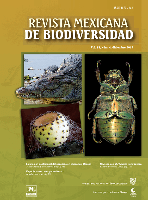
Revista Mexicana de Biodiversidad
Advancing the Science of Biodiversity in Mexico and BeyondRevista Mexicana de Biodiversidad is a prominent academic journal dedicated to the field of biodiversity and conservation, published by the prestigious Instituto de Biología, Universidad Nacional Autónoma de México. Since its inception as an Open Access publication in 2005, it has aimed to disseminate high-quality research that advances the understanding of biological diversity in Mexico and beyond. With an ISSN of 1870-3453 and an E-ISSN of 2007-8706, the journal caters to a diverse audience, including researchers, professionals, and students, by providing vital insights into ecological studies, conservation strategies, and the sustainable management of natural resources. The journal is committed to fostering scientific collaboration and promoting the significance of biodiversity in addressing contemporary environmental challenges. By publishing innovative and impactful research, the Revista Mexicana de Biodiversidad plays an essential role in the global discourse on biodiversity conservation.
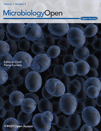
MicrobiologyOpen
Advancing microbiological research for a global audience.MicrobiologyOpen is a prestigious, open access journal published by WILEY, dedicated to advancing the field of microbiology. Since its inception in 2012, this journal has firmly established itself as a significant platform for researchers, professionals, and students alike, facilitating the dissemination of high-quality research findings across a wide range of microbiological disciplines. With an impressive impact factor and a ranking in the 76th percentile of Scopus for immunology and microbiology, MicrobiologyOpen offers a robust forum for innovative studies, reviews, and compelling insights that push the boundaries of scientific understanding. The journal's commitment to open access ensures that groundbreaking research is freely available to the global community, fostering collaboration and knowledge-sharing. As it continues to evolve until 2024, MicrobiologyOpen remains pivotal for anyone looking to stay at the forefront of microbiological research.
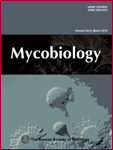
MYCOBIOLOGY
Fostering Collaboration in the World of MycologyMYCOBIOLOGY is an esteemed open-access journal published by Taylor & Francis Ltd, specializing in the fields of Infectious Diseases, Microbiology, and Plant Science. Since its inception, the journal has provided a platform for innovative research, showcasing a diverse range of studies that delve into the complexities of mycology and its vast implications on health, agriculture, and the environment. With a commendable impact factor and a Q2 ranking in Plant Science as of 2023, MYCOBIOLOGY facilitates the dissemination of vital findings to a global audience of researchers, professionals, and students. In addition to its commitment to high-quality content, MYCOBIOLOGY has embraced open access since 2018, ensuring that the latest advancements in mycological research are readily available to the academic community and the public. By bridging gaps in knowledge and fostering collaboration across disciplines, MYCOBIOLOGY plays a crucial role in advancing our understanding of fungal biology and its myriad applications.

ISME Communications
Unveiling Microbial Mysteries for Ecosystem SustainabilityISME Communications is an esteemed journal dedicated to advancing the field of environmental microbiology and its multifaceted intersections with ecology, biogeochemistry, and biotechnology. Published by SpringerNature, this journal aims to disseminate cutting-edge research and innovative insights that address pressing global challenges through interdisciplinary approaches. With a commitment to open access, it provides a platform for researchers, professionals, and students to share their findings widely, fostering collaboration and knowledge exchange. Although the journal is relatively new, its potential for impactful contributions is substantial, making it an essential resource for anyone interested in the microbial processes that underpin ecosystem functioning and sustainability. The journal not only prioritizes the rigorous peer-review process but also supports the academic community's pursuit of excellence in environmental science.
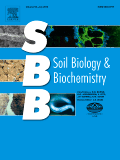
SOIL BIOLOGY & BIOCHEMISTRY
Exploring Microbial Mysteries in Soil EcosystemsSOIL BIOLOGY & BIOCHEMISTRY, published by Pergamon-Elsevier Science Ltd, is a premier academic journal that plays a pivotal role in advancing the fields of microbiology and soil science. Established in 1969, this esteemed journal has gained recognition for its rigorous publication standards and impactful research contributions, evidenced by its prestigious Q1 rankings in both Microbiology and Soil Science categories for 2023. With an impressive Scopus rank of #3 among 159 in Agricultural and Biological Sciences and #14 among 182 in Immunology and Microbiology, it boasts a notable 98th percentile in its field. The journal offers researchers, professionals, and students a vital platform for sharing innovative studies and insights about soil ecosystems and their biochemical processes, fostering greater understanding and collaboration within the scientific community. While Open Access options are currently not available, the journal remains a cornerstone for those seeking to deepen their knowledge and contribute significantly to soil biology and biochemistry.
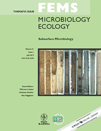
FEMS MICROBIOLOGY ECOLOGY
Connecting Research and Application in Microbial EcologyFEMS Microbiology Ecology is a prestigious journal published by Oxford University Press, specializing in the dynamic field of microbiology and its ecological implications. With an impressive impact factor and consistently ranked in the top quartiles (Q1) across multiple categories—including Applied Microbiology and Biotechnology, Ecology, and Microbiology—this journal serves as an essential resource for researchers and professionals aiming to advance their understanding of microbial interactions within ecosystems. Established in 1990 and spanning to 2024, FEMS Microbiology Ecology delivers cutting-edge research, reviews, and insightful discussions that illuminate the complex roles microorganisms play in environmental health and sustainability. Located in the United Kingdom, this journal provides a global platform for discourse, making significant contributions to both theoretical frameworks and practical applications in the biotech and environmental science sectors. Researchers and students alike will find a wealth of information that not only enriches their knowledge but also inspires innovative solutions for ecological challenges.

WORLD JOURNAL OF MICROBIOLOGY & BIOTECHNOLOGY
Elevating Research in Microbiology and BiotechnologyWORLD JOURNAL OF MICROBIOLOGY & BIOTECHNOLOGY, published by Springer, serves as a pivotal forum for advancing the fields of microbiology and biotechnology since its inception in 1990. Located in the Netherlands, this esteemed journal has secured a prominent position in the academic landscape, recognized for its strong impact factor and prestigious Q2 category rankings across disciplines such as Applied Microbiology, Biotechnology, and Physiological Sciences. Researchers and professionals utilize this journal to disseminate innovative findings and explore emerging technologies that are transforming the scientific landscape. With a robust submission rate and high visibility among the academic community, the journal fosters interdisciplinary collaboration, encouraging discussions that bridge gaps between theory and practical applications. As it converges into 2024, the WORLD JOURNAL OF MICROBIOLOGY & BIOTECHNOLOGY continues to be a vital resource for scholars aiming to enhance our understanding of microbial processes and biotechnological advances.